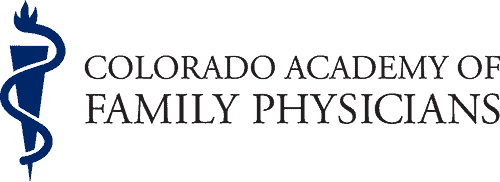Groups Focused on COVID-19 Vaccine Equity Efforts

For many months, Colorado has been ramping up its COVID-19 vaccine equity efforts. As we move away from a time of vaccine scarcity, that effort becomes more important than ever.
From both inside and outside state government, organizations large and small across the state of Colorado have been focused on vaccine equity, both in access to the COVID-19 vaccine as well as access to information about the vaccine that will help individuals better understand the facts and get vaccinated.
The Colorado Department of Public Health and Environment launched the Champions for Vaccine Equity program in fall 2020 as the real possibility of a vaccine came into view. The Champions are made up of physicians and other healthcare providers of color who are volunteering their time to do outreach to groups on the safety and efficacy of the available vaccines. The Colorado Vaccine Equity Taskforce, formed to address the growing inroads anti-vaccination advocates are making into communities of color, pivoted as well toward work around the COVID-19 vaccine and encouraging uptake.
Both groups have focused on providing safe and welcoming spaces for individuals to ask questions and get real answers to their concerns around the vaccine. These group gatherings, held at the request of organizations from across the state from schools to community groups, have reached thousands of people and have provided some of the only forums outside of clinics and hospitals for people to come forward with questions.
“The issue of vaccine equity in Colorado is a complicated one and you can honestly see that reflected in the troubles we’ve been having ensuring that communities of color are getting access to the vaccine, whether that’s because of historic barriers to care or hesitancy around the vaccine itself,” said Dr. Ozwaldo Grenardo, a family physician with Centura Health and one of the Colorado Vaccine Equity Taskforce’s tri-chairs. “We have to acknowledge the systemic racism people face, but we can’t let that be the final word on our work to make sure that every one of us gets access to this vaccine and all of the protection it provides.”
Current data from the state shows that members of the Black and Latino communities are getting the vaccine at a much lower rate than their white counterparts. That reality is reflected across communities throughout the state. Immigrant communities from many countries are also accessing vaccines at a lower rate with many reporting fear of data collection and arrest as a common reason they don’t want to interact with health care organizations.
The state has adopted a number of strategies to try and overcome issues related to equity including organizing small pop-up clinics conducted by trusted organizations in communities, holding larger clinics with no appointments necessary, deploying mobile vaccination buses and direct, on-the-ground efforts, and phone calls to make real-time appointments, and issuing Public Health Order 21-01 to reduce barriers to vaccination.
You can stay in touch with information about vaccine equity, or volunteer to help. Here are resources:
- The Colorado Vaccine Equity Taskforce: This taskforce, launched by Immunize Colorado, provides free speakers for groups as well as support for community-based organizations doing vaccination outreach and non-medical volunteers for pop-up clinics.
- Champions for Vaccine Equity: This group of dedicated providers offer free speakers for any group hoping to better understand the science behind the vaccine and ask questions to help them get the facts they need.
- Colorado Vaccination Dashboard: The Colorado Department of Public Health and Environment provides continuously updated data on vaccine uptake, including data aggregated by race and ethnicity.
- Colorado Health Institute: Using data from CDPHE, the Colorado Health Institute has developed a set of maps to help identify equity issues across the state by race and ethnicity as well as socioeconomic status and ability to social distance.
If you have questions or need additional information, please contact CDPHE’s immunization branch at 303-692-2700 or cdphe.dcdimmunization@state.co.us.
